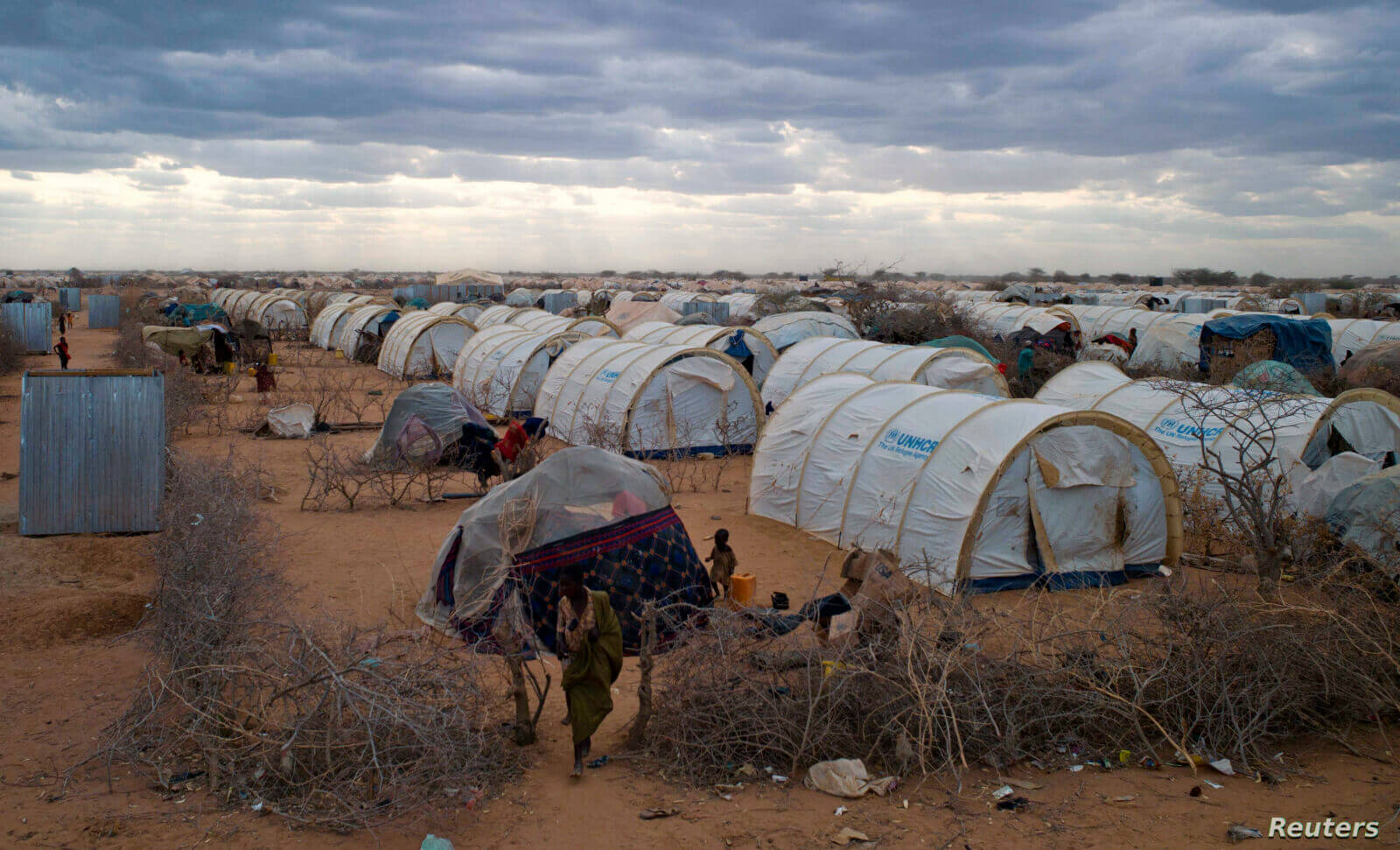
Kenya Orders Closure of Dadaab and Kakuma Refugee Camps
Kenya has ordered the closure of the massive Dadaab and Kakuma refugee camps, which collectively host over 500,000 people, within the next two weeks.
The government is citing national security threats posed by some of the refugees, including past terror attacks that have been linked to accomplices of the Somali-based Al-Shabaab militant group within the camps.
The government gave the United Nations High Commissioner for Refugees (UNHCR) a 14-day ultimatum to ensure closure of the facilities, failing which it plans to transport the refugees to the border with Somalia.
Interior Cabinet Secretary, Fred Matiangí, yesterday communicated the Kenyan government’s decision to the UNHCR representative in Kenya, Fathiaa Abdalla. The CS was accompanied by his PS, Karanja Kibicho, and Chief Administrative Secretary Hussein Dado.
Dr Matiangí had called the UNHCR delegation for talks at Harambee House, arising from Kenya’s concerns that the international community had reneged on a previous agreement to repatriate the refugees.
Dr Matiangí reportedly told the UNHCR delegation “there is no room for negotiations” about the closure.
“We must strike a balance between Kenya’s international obligations and her domestic duty. We do have a domestic responsibility to protect Kenyans,” Dr Matiangí said
Officials said Kenya could no longer continue to bear the burden of the two camps that have been in operation since the early 1990s, when Somalia plunged into civil war.
Besides straining resources, Kenya says national security has been comprised through terror attacks reportedly planned from the sprawling camps “while the international community continues to pay lip service.”
Ms Abdalla reportedly requested to consult with her seniors, but pledged that the UNHCR is committed to reducing the number of refugees on Kenyan soil.
President Uhuru Kenyatta’s government had initially agreed on the repatriation in November 2013 with Somalia and the UNHCR, which would have seen the refugees return home over a three-year period.
However, only 14,000 had been repatriated by April 2016 and the following month Kenya set another timeline for the closure of the Dadaab refugee complex, by November 30, 2016. The government is this time determined to see to it that the refugees are all repatriated within the next four months.
Kenya has protested that the international community, including UNHCR, never honoured a pledge to contribute to a kitty to facilitate the repatriation. Kenya, which was the only contributor having put in $10 million (Sh1 billion), says a United Nations camp can be set up in Somalia.
Besides abandoning Kenya to foot the bills alone, Nairobi has also protested that the world powers have frustrated attempts to have the Al-Shabaab who operate from bases in war-torn Somalia designated as a terrorist organisation.
The resolution has in the past been shot down at the United Nations Security Council (UNSC), under the guise that doing so would hamper humanitarian work in the war-torn Somalia.
Nairobi has said proceeds from the contraband trade including smuggling of sugar from Somalia into Kenya have been used to finance Al-Shabaab operations.
Kenya has always maintained the refugee camps are breeding grounds for terrorism including planning of terror attacks by Al-Shabaab militants.
The urgency to shut down the camps was stressed by three terrorist attacks that claimed the lives of over 100.
Kenya cited intelligence that terror attacks on Westgate mall in 2013, Lamu’s Mpeketoni in 2014 and Garissa University in 2015 were planned from the camps.
The camps are among the biggest in the world, with Dadaab hosting 224,462 refugees while Kakuma has 206,458. Majority of the 512,494 refugees are from Somalia (274,299) while the rest are from neighbouring countries.

